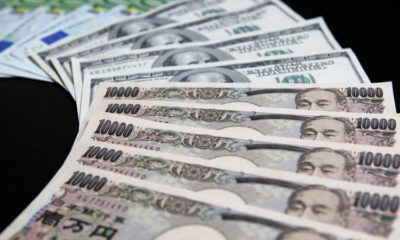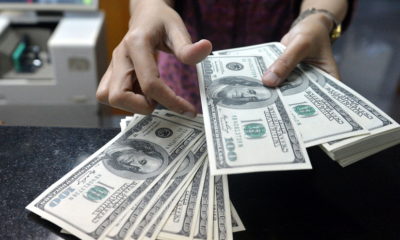Fitch Ratings has upgraded Nigeria’s credit outlook to positive, citing the country’s reform progress under President Bola Tinubu’s administration.
This decision is a turning point for Africa’s largest economy and signals growing confidence in its economic trajectory.
The announcement comes six months after Fitch Ratings acknowledged the swift pace of reforms initiated since President Tinubu assumed office in May of the previous year.
According to Fitch, the positive outlook reflects the government’s efforts to restore macroeconomic stability and enhance policy coherence and credibility.
Fitch Ratings affirmed Nigeria’s long-term foreign-currency issuer default rating at B-, underscoring its confidence in the country’s ability to navigate economic challenges and drive sustainable growth.
Previously, Fitch had expressed concerns about governance issues, security challenges, high inflation, and a heavy reliance on hydrocarbon revenues.
However, the ratings agency expressed optimism that President Tinubu’s market-friendly reforms would address these challenges, paving the way for increased investment and economic growth.
President Tinubu’s administration has implemented a series of policy changes aimed at reducing subsidies on fuel and electricity while allowing for a more flexible exchange rate regime.
These measures, coupled with a significant depreciation of the Naira and savings from subsidy reductions, have bolstered the government’s fiscal position and attracted investor confidence.
Fitch Ratings highlighted that these reforms have led to a reduction in distortions stemming from previous unconventional monetary and exchange rate policies.
As a result, sizable inflows have returned to Nigeria’s official foreign exchange market, providing further support for the economy.
Looking ahead, the Nigerian government aims to increase its tax-to-revenue ratio and reduce the ratio of revenue allocated to debt service.
Efforts to achieve these targets have been met with challenges, including a sharp increase in local interest rates to curb inflation and manage public debt.
Despite these challenges, Nigeria’s economic outlook appears promising, with Fitch Ratings’ positive credit outlook reflecting growing optimism among investors and stakeholders.
President Tinubu’s administration remains committed to implementing reforms that promote sustainable growth, foster investment, and enhance the country’s economic resilience.
As Nigeria continues on its path of reform and economic transformation, stakeholders are hopeful that the positive momentum signaled by Fitch Ratings will translate into tangible benefits for the country and its people.

 Forex4 weeks ago
Forex4 weeks ago
 Naira4 weeks ago
Naira4 weeks ago
 Billionaire Watch4 weeks ago
Billionaire Watch4 weeks ago



 Naira4 weeks ago
Naira4 weeks ago






 Naira3 weeks ago
Naira3 weeks ago


 Naira3 weeks ago
Naira3 weeks ago






 Naira2 weeks ago
Naira2 weeks ago
 Economy4 weeks ago
Economy4 weeks ago






















